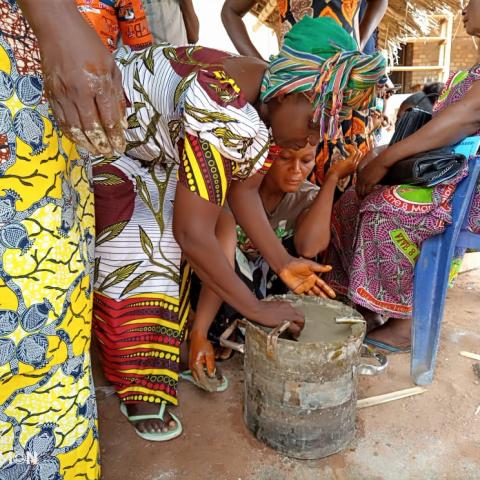Empowering families in Bili-Uele
Community members in Bili-Uele embrace sustainable practices that reduce labor and improve quality of life, and we promote such practices as part of a holistic conservation strategy. In the Bili-Uele landscape, we’re facilitating training in constructing stoves that burn less fuel and produce less smoke, easing the strain on a fragile forest ecosystem while empowering local women. The training is part of a USAID-funded community-based counter wildlife trafficking project designed to improve community livelihoods in Bili-Uele.

Sustainable farming to protect the forest
The United States Agency for International Development is collaborating with us through a community-based counter wildlife trafficking project to provide technical support to Bili-Uele farmers interested in migrating from subsistence farming to sustainable agribusiness. Our team runs workshops that address harmful practices such as slash-and-burn agriculture and demonstrate sustainable practices like crop rotation. Alongside training on product marketing, these sustainable agriculture techniques have boosted yields and income for farmers in Bili-Uele—a win-win for a fragile rainforest ecosystem and for farmers.

Fostering a conservation ethic and action
Long-term conservation success depends on developing a corps of future conservation champions, which is why we conduct student outreach in Bili-Uele. Recently In a concession of the Catholic Church of Bili-Uere, 168 senior students from two elementary schools planted 140 quickly growing seedlings to replace palm trees that had long since been uprooted. The pupils were enthusiastic and promised to plant a tree around their homes as a show of support for our work and mission. Earlier, AWF community facilitators had taught elementary school children about agroforestry methods. This activity was a part of that lesson.


Pagination
- Previous page
- Page 3